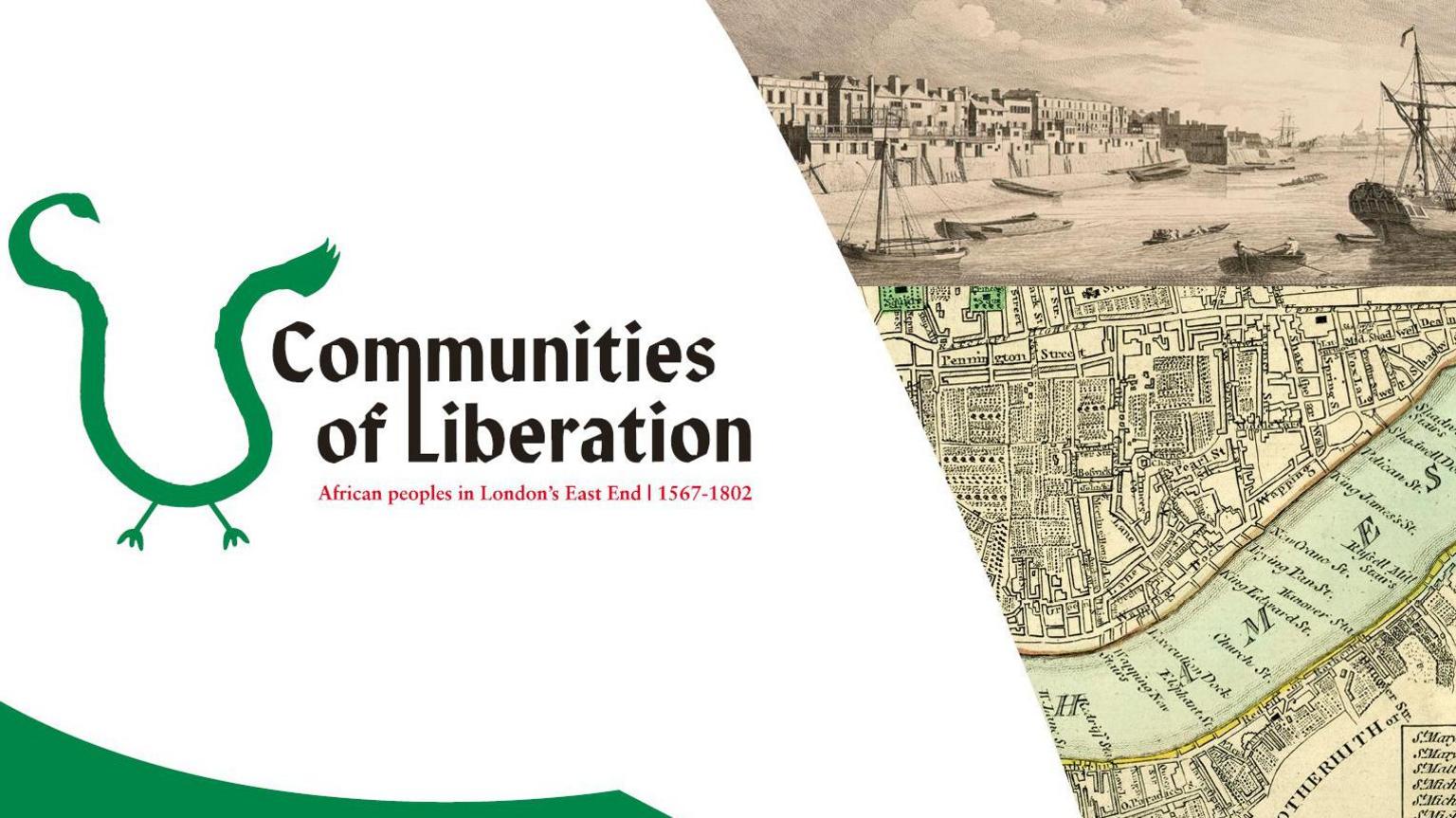Artist launches British slavery exhibition
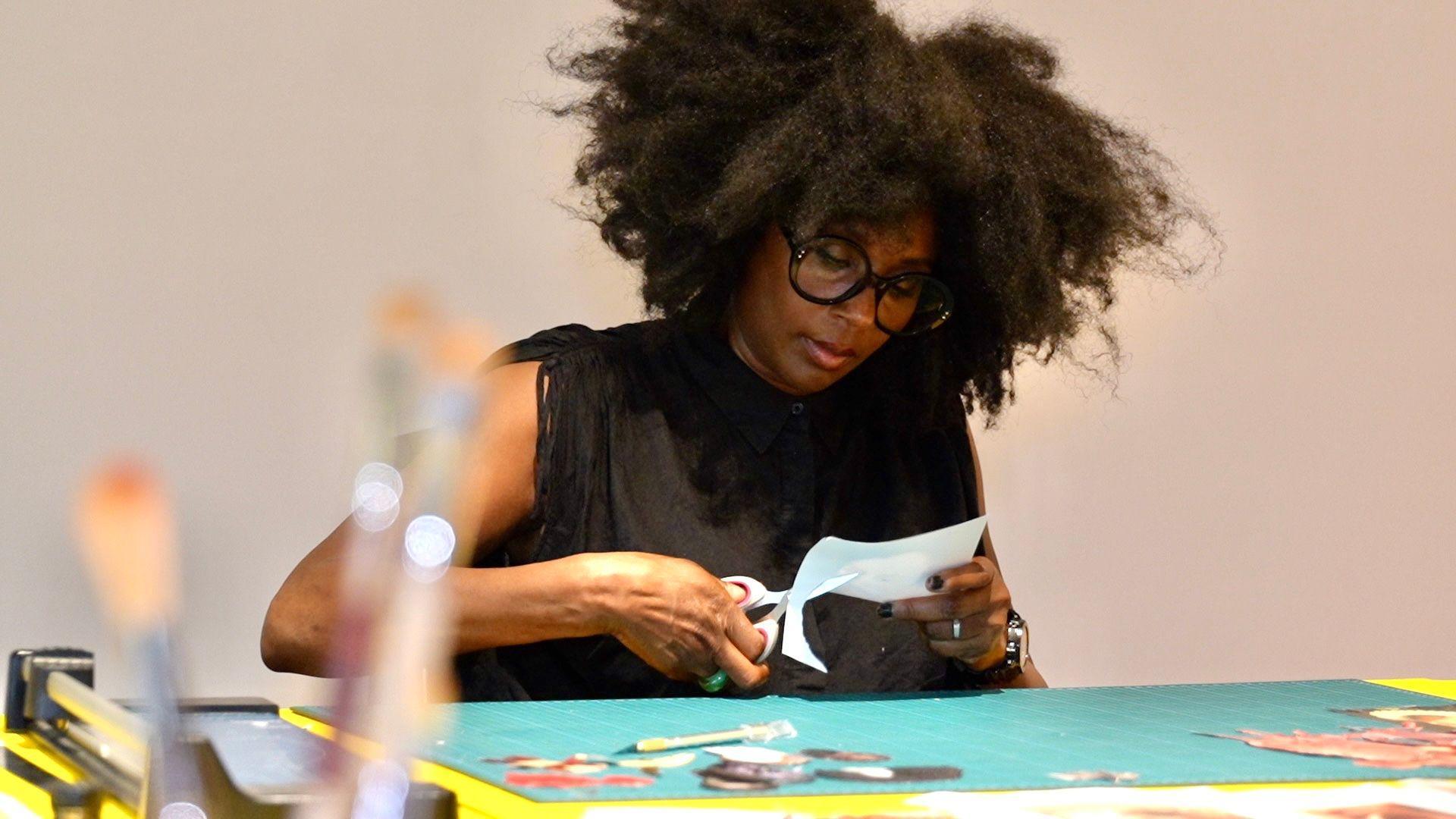
Elsa James's new exhibition reflects on the transatlantic slave trade
- Published
A renowned Essex-based artist is looking to reflect on three centuries of Britain's involvement in the transatlantic slave trade through her new exhibition.
Elsa James recently launched It Should Not Be Forgotten at Firstsite museum in Colchester, with the intention of "exposing the atrocities of this history".
The collection of work features colonial archive records alongside photography, soundscapes and a mixture of media.
"The work is melding all of those fragmented bits of history together using new media," James told the BBC.
"It's a response to what this history has done to people in the African diaspora - that rupture and erasure."

The exhibition runs at the Firstsite museum until 6 July
Within the exhibition, James presents a series of text screen prints that give a voice to two enslaved women that were featured in the journals of the British plantation enslaver Thomas Thistlewood.
James said: "I tried to give the women a voice that wasn't abused, but a voice of their own.
"As humans, I've given them back their humanity and womanhood."
Visitors can also explore a large-scale photographic installation that draws inspiration from American academic Christina Sharpe, larger-than-life-sized images created in collaboration with choreographer Seke Chimutengwende, and a collection of drawings, photomontages and collages.
James said: "It urges audiences to reflect on three centuries of Britain's involvement in the trafficking of African people - recognising it as a crime against humanity that has led to racist ideologies that still impact Black people today."
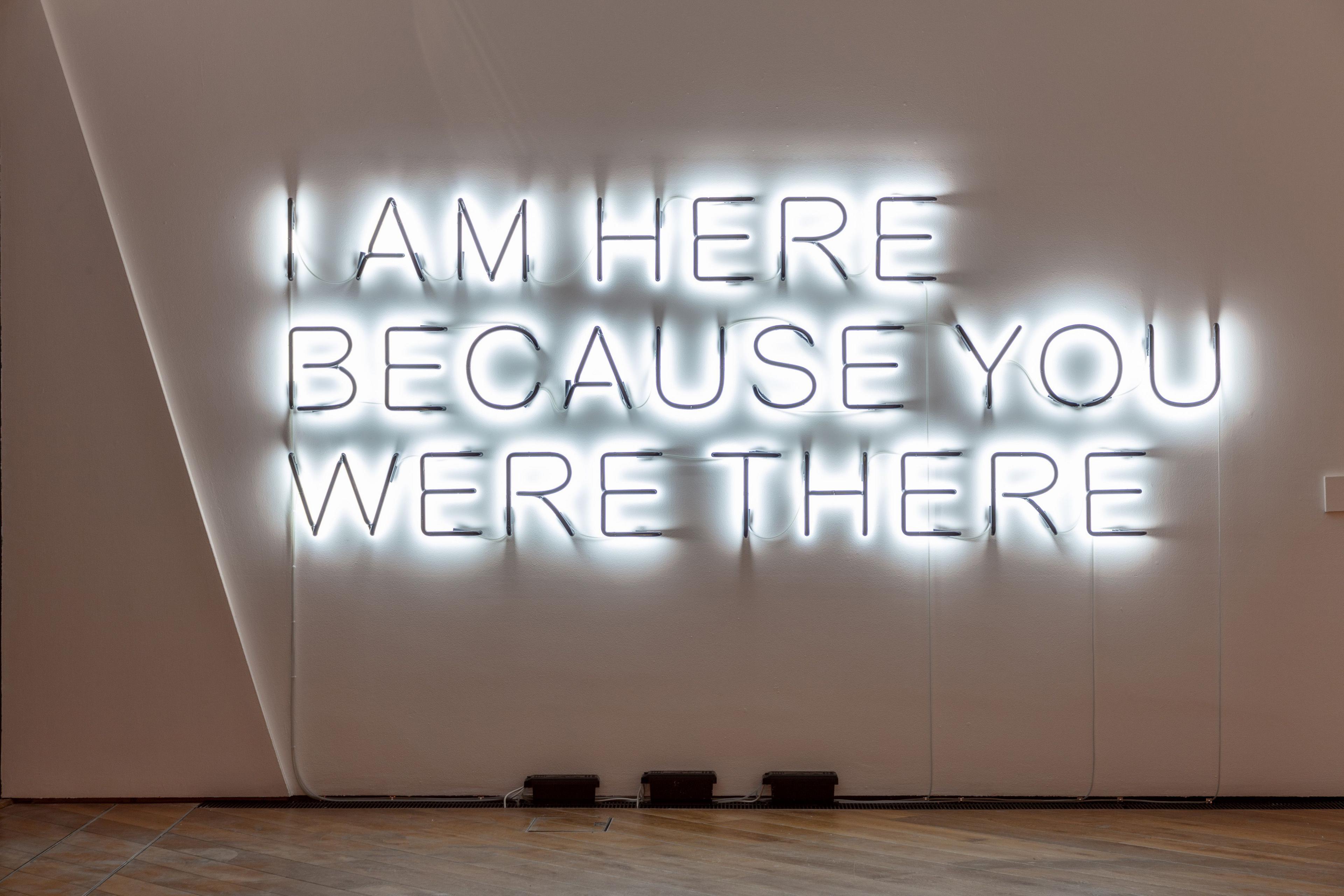
James described her exhibition as "a response to what this history has done to people in the African diaspora"
Follow Essex news on BBC Sounds, Facebook, external, Instagram, external and X, external.
Related topics
- Published24 June 2023
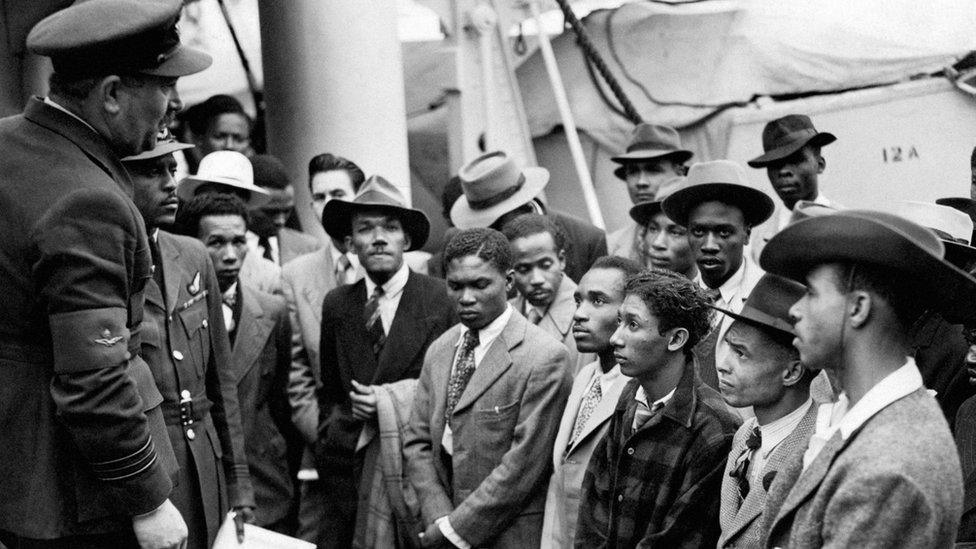
- Published9 February
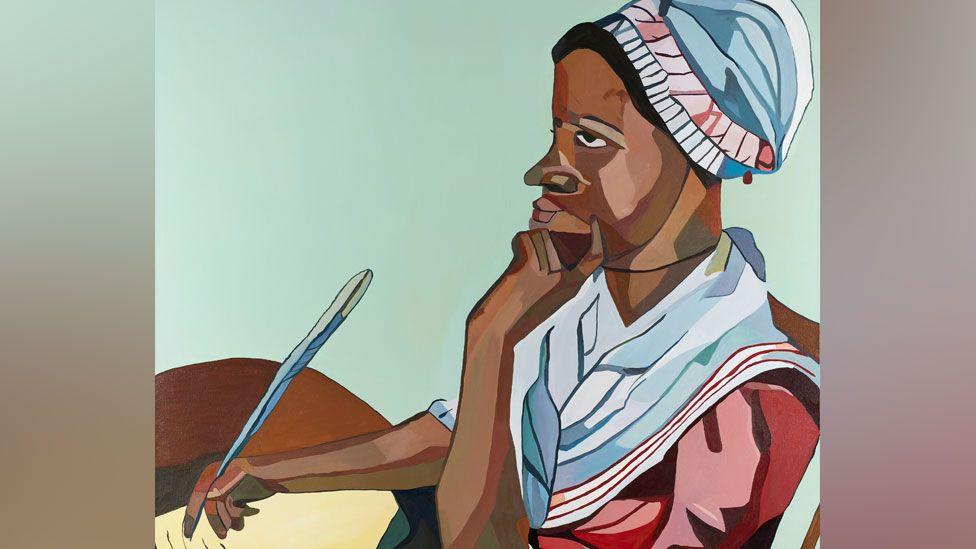
- Published17 March
